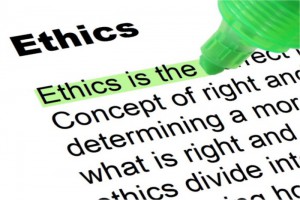Case Studies: The Practice Field for Public Relations

As PRSSA celebrates Ethics Month, it is important to consider how to become ethical public relations practitioners. While we face a wide range of ethical issues in internship and classroom settings, few of us are placed in situations where our ethical decisions directly affect the entire reputation and success of a company. So, how can we as students begin to prepare for the future? How do we practice making the right ethical decision when the pressure is on?
One of the best ways to practice making ethical decisions is through case studies. Real-life examples and scenarios are a great way for students to break down real situations and approach them in a setting that allows us to refine our skills and understand the correct steps to making ethical decisions.
“Case studies provide empirical evidence of strategies that work and responses that fail,” says Dr. Tiffany Gallicano, a communications faculty member at UNC-Charlotte whose research focuses on ethics in public relations.
“As Walter Fisher says, we are all storytellers,” Gallicano said. “We live our lives through stories. They are an engaging format for how we generate meaning in the world.”
Completing a case study requires discipline, and as you successfully master the details of each case study you develop habits that lay the foundation for a successful career in public relations.
As an intern working for my school’s athletic department, one of my responsibilities includes assisting in media operations following football practices. During the hot days of late summer and early fall, I’ve watched the players as they practice and prepare for the upcoming season. The work on the practice field is accompanied by weightlifting, team meetings and film sessions. These practices can be physically grueling, but a large portion of the work is mental as players learn new plays for the offense, drill defensive schemes and perfect their special teams formations.
As PRSSA members, we are practicing and honing our skills through classes, jobs, internships, Student-run Firm participation and PRSSA activities as we prepare for graduation. During this time, it is important for us to consider how we can boost our own experience as we prepare for the professional world. In addition to the many skills and abilities required to succeed in public relations, it is vital to remember to practice and hone your own personal ethical decision-making ability.
“Ethical issues can seem easy to handle when treated in a general way,” Gallicano said. “Putting them into context helps students learn about the pressures involved in the situation and how to respond to the situation.”
In celebration of Ethics Month, PRSSA will hold a case study competition to assist students interested in improving their ethical decision-making skills. I encourage each of you to take the time to put in the practice so that when game day comes, you’ll be confident in your abilities to perform at the highest levels.
—
Andrew Cook is the PRSSA 2016–2017 vice president of advocacy and a senior studying public relations at Brigham Young University. Follow him on Twitter @adcook22.
